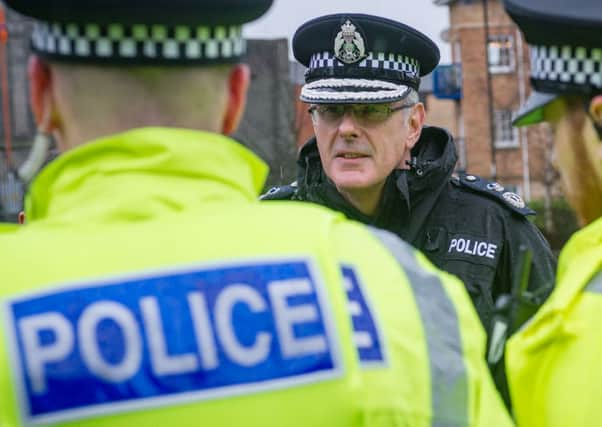Chris Marshall: Effects of changes to policing will become clearer in 2017


While the full implications of the UK leaving the European Union are unlikely to be felt for some time, one immediate concern is the impact the vote to leave will have on the ability to fight crime across borders.
In November, the Home Office announced the UK would opt in to a new framework which allows for continued membership of Europol, the EU’s police force.
Advertisement
Hide AdAdvertisement
Hide AdBut the decision merely allows for continued membership of the crime fighting agency while the UK remains part of the EU.
Both justice secretary Michael Matheson and Lord Advocate James Wolffe have called for the UK to retain its relationship with Europol, as well as access to the European Arrest Warrant, post-Brexit.
Over the next 12 months we are likely to get more detail on what Britain’s post-EU settlement might look like, although negotiations could drag on for years yet.
Police Scotland, which has set up a Brexit taskforce, and the prosecution service, which routinely works with European colleagues, will be following the discussions with interest.
While the past 12 months have been relatively calm for Scotland’s single police force after the tumult of 2014 and 2015, there have nevertheless been challenges to face.
Since been sworn in as chief constable in January, Phil Gormley has managed to oversee a period of calm consolidation for a force which seemed to lurch from crisis to crisis until recently.
That does not mean Police Scotland’s problems are in the past, however.
The national force is expected to finish the financial year with a £17.5 million overspend on its £1.1 billion budget and seems to be storing up problems for the future in terms of the some of the cuts it has been forced to make.
Advertisement
Hide AdAdvertisement
Hide AdThis year saw the emergence of a new narrative around policing where – perhaps to soften the blow of future cuts to police officer numbers – senior figures began to talk of the importance of more officers dealing with cyber crime and more crime being dealt with over the phone without officers visiting victims in person.
The Scottish Police Authority (SPA), which is currently working on a vision of what policing will look like in 2026, said the future was likely to mean fewer uniformed officers and more graduates working in “darkened rooms” to tackle the growing threat of cyber crime.
The SPA itself came under criticism from both MSPs and police staff associations for a decision to carry out more of its committee meetings in private.
Meanwhile, Holyrood’s justice committee launched an inquiry into the work of the Crown Office and Procurator Fiscal Service (COPFS).
While some initially held doubts about the work, the inquiry has revealed concerns held by witnesses, police officers and prosecutors themselves.
It has all added up to give the impression of a prosecution service – like much of the public sector – which is becoming increasingly stretched under an onerous caseload.
While constitutional issues at home and abroad are likely to dominate 2017 as they have 2016, there will still be plenty of challenges for our police, courts and politicians to come to grips with in the months ahead.